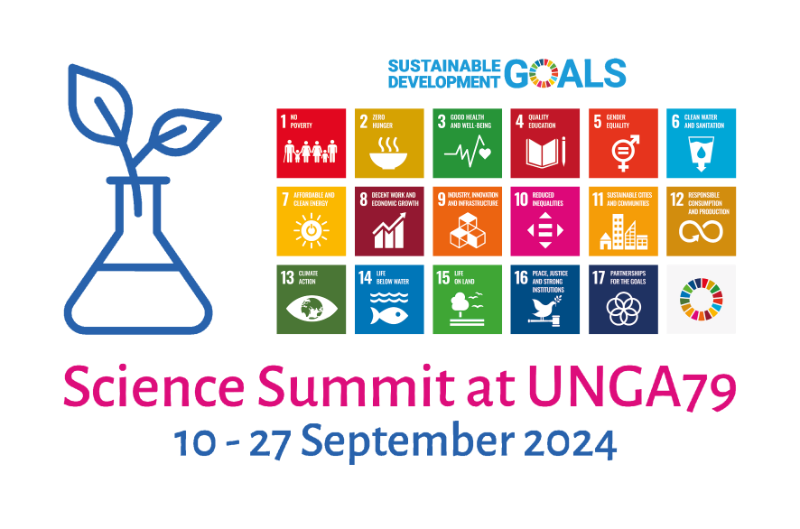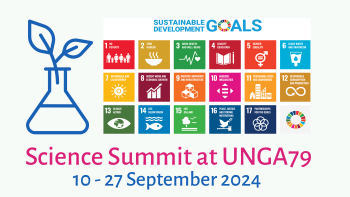Global Science Collaboration Conference 2020 (GSCC2020)
ISC Intelligence in Science will organize the second online edition of the Global Science Collaboration Conference around the 75th United Nations General Assembly (UNGA75) in New York in September 2020.
The central theme of this conference will be the role and contribution of science and digital technologies to the attainment of the United Nations Sustainable Development Goals (SDGs).
The title Sciencedigital@UNGA75 builds on the successful Global Science Coalition Conference which brought together 2500 representatives from 100 countries at the European Parliament in Brussels in March 2013 during the Ireland Council Presidency of the European Union.
The conference was opened by Maire Geoghegan Quinn, the European Union Commissioner for science and innovation and closed by Irish Prime Minister Enda Kenny in his role as chairman of the European Council.

The objective will be to develop and launch science and digital capacity initiatives and demonstrate global science mechanisms and activities in support of the attainment of the SDGs.
Science infrastructures and digital research capacity building are crucial to enable scientists to collaborate at global level to create opportunities for wide-ranging initiatives that can produce innovations to address challenges in the area of health, climate, environment, energy, agriculture, and food, amongst a range of other objectives.
Goals
Raise awareness and develop an understanding of the vital contribution of science and technology to achieving and implementing the UN’s SDGs and Agenda 2030
Introduce concepts for ICT enabled science mechanisms to support achieving SDGs, based in part on EU research initiatives to support science and related capacity building
Themes
- HEALTH
- SPACE AND ASTRONOMY
- ICT
- SCIENCE CAPACITY BUILDING
- SKILLS
- DATA-ENABLING SCIENCE
Plenary Sessions
1. Science to support “Building Back Better”
2. Square Kilometre Array Radio Telescope Intergovernmental Organization (SKAO)
3. Skills development, up-skilling, education and training
4. Data-enabled science
5. Assistive technologies
6. Youth engagement and science skills
7. Data protection legislation globally
8. Data infrastructure for Global Health
9. Building Science capacity globally
10. Regulation to enable scientists to exchange knowledge and know-how globally (e.g. health data)
11. Policy alignment to enable and support scientific research locally, regionally, nationally and globally
12. Mechanisms to support science collaboration to achieve the SDGs
13. Exploit existing knowledge and know-how contained in patents and other forms of intellectual property for science
14. Develop post-mercantilist trade policy ideas to enable free data and support global science.
Format
200 science, technology and innovation online sessions
10 Plenaries
20 Workshops
1 Ring the Opening Bell on Wall Street NYSE
40 Meetings with investors on Wall Street
150 Nations involved
20 Science-collaboration clinics
1 Supplement in the Financial Times, leading the way in business, society and the wider world.
1 Supplement in Nature, the leading international journal of science
1 Youth Science Parliament

